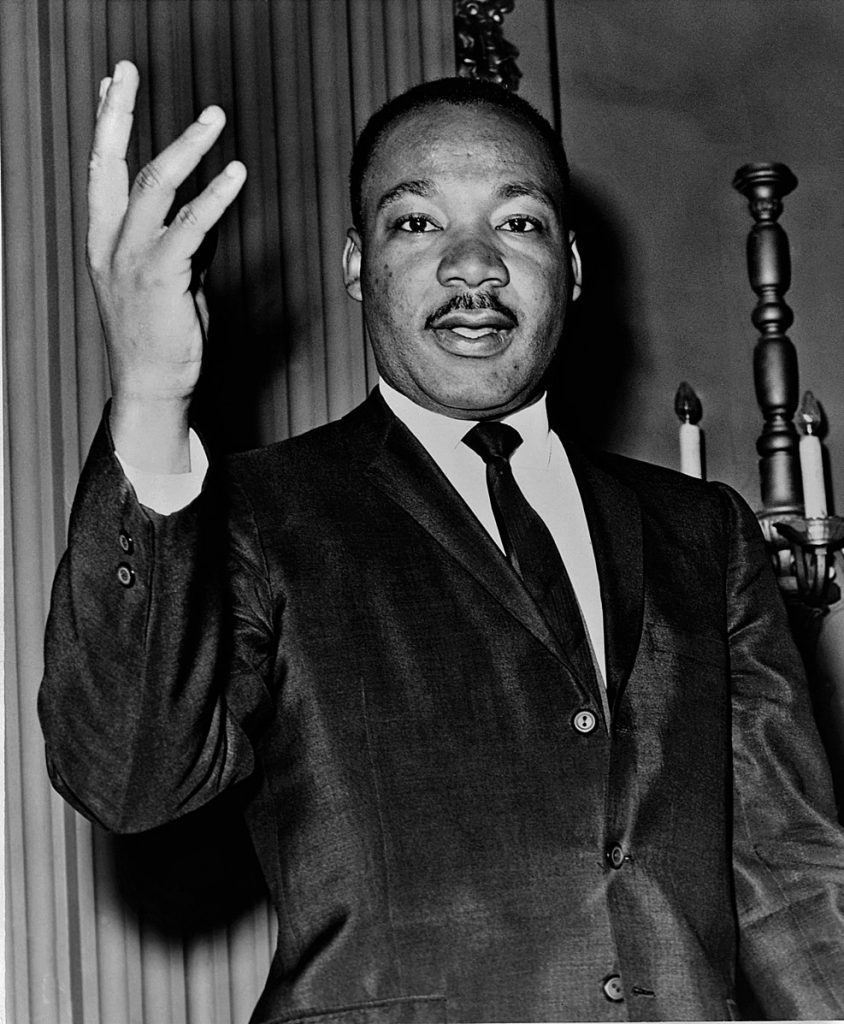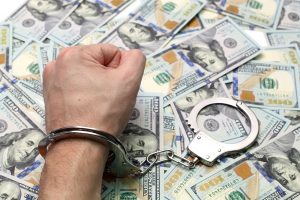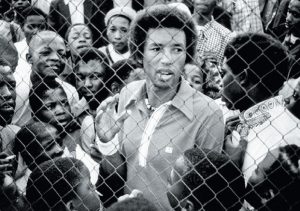When news broke that civil rights leader Martin Luther King Jr. had been killed on April 4, 1968 in Memphis, Tennessee, people couldn’t help but feel anger and outrage. King, who had started a revolution to end social injustice, had just been killed, and many people were left wondering if they would forever be stuck in a never-changing world.1

When black citizens in Washington D.C found out King had been killed, they wanted local stores to close out of respect for this civil rights leader. When stores did not close, this lack of respect sparked a dispute between citizens and the police. What started off as a peaceful mourning ended up a four-day violent riot where people were smashing windows, breaking into stores and hurting each other. Store owners wrote “Soul Brother” on their windows to let rioters know they were black-owned and also mourned King’s death. Because Dr. King didn’t believe violence was the answer, it’s ironic that rioters used violence to show their anger about his assassination.2
The rioters seemed ready for war and had no plans on stopping, which caused 13,600 troops, along with the National Guard, to try to end the riots. They gave the citizens a curfew and stopped selling alcohol and guns in hopes they would give up on rioting. Although the mayor instructed them not to fire at anyone, troops shot two people and injured many more. In total there was 12 deaths and 1,098 injuries in Washington D.C alone. Throughout the nation, cities such as Chicago, Kansas City, and Baltimore were having their own riots related to the assassination, and the nation accumulated more than 2,500 injuries and 40 deaths. Each city seemed handle the riots in similar ways, but Washington had the most damage and the hardest time getting back to normal after the riots.3
Police continued monitoring the streets, and on April 8, 1968, the city seemed to be done with the riots. The city of Washington D.C started rebuilding after accumulating $25 million in damages during the riot. Some areas were fixed right away, while other areas such as Seventh Street and Florida Avenue NW took more than thirty years to return to normal. Due to this rebuilding process, the economy tanked, causing “white flight,” where many white residents moved away from Washington D.C because of the violence occurring in the neighborhoods.4

The riots may have ended, but people across the nation were still hurting and angry. On April 11, 1968 Lyndon B. Johnson signed the Civil Rights Act Of 1968, which prohibited discrimination concerning the sale, rental and financing of housing based on race, religion, national origin or gender. Many believe that President Johnson signed this act in attempt to prevent any more riots and outbreaks that may have occurred in the nation. Although signing this act didn’t cure racism and didn’t heal the broken hearts of the many people mourning, it was a step in the right direction and the last major act of the Civil Rights Movement.5
- Adrienne Wilmoth Lerner, Brenda Wilmoth Lerner, and K. Lee Lerner, City of Memphis v. Martin Luther King Jr. (Detroit: Gale, 2006), 345-348. ↵
- Meggin Condino, Martin Luther King Jr.’s Assassination Shocks the Nation (The Arts, Business and Industry: UXL, 2010), 42-44. ↵
- Meggin Condino, Martin Luther King Jr.’s Assassination Shocks the Nation (The Arts, Business and Industry: UXL, 2010), 42-44. ↵
- Encyclopedia of Social Problems, 2008, s.v. “White Flight.” ↵
- Encyclopedia of African American History, 2010, s.v. “Civil Rights Act of 1968.” ↵



51 comments
Thomas Fraire
After social equality pioneer Martin Luther King Jr, passed on numerous individuals needed to demonstrate their appreciation by shutting their shops however many did not have any desire to and that how the mobs began. This article could have included more subtleties on the mobs and yet with it was as yet educational. Its amusing after the passing of a standout amongst the most serene social equality pioneer so much viciousness rose.
Eric Ortega Rodriguez
It is really disappointing to read that some of the after effects were violence after Martin Luther King Jr.’s passing. Primary because this was the complete opposite of what he wished to happen. Martin Luther King Jr. stood for peaceful protest, he fought using his words and intelligence which is something people can learn from. Overall, this was a great topic choice and was very well written as well. It was fascinating to read how one person had such a huge impact on America and its future. Good work.
Erika Jackson
I liked reading this article because not a lot people knows what exactly happened after MLK’s death. Of course people knew they were angry but they didn’t know how angry they were. And this article telling us about all the riots that happened in big cities across the US is eye opening. It just shows how much impact he had on the country as a whole.
Mia Morales
The assassination of Martin Luther King will always be significant to our history. He advocated peaceful protests that helped start a revolution for a change in America. It is so saddening to read that everything he advocated for seemed to turn into very violent riots after he was killed. Martin Luther King leaves a very big legacy behind him and these protests after his death highlight the major impact he had on others.
Matthew Swaykus
When Martin Luther King was assassinated, the entire nation was stricken by grief. It is unfortunate that one of its many stages, anger, made its mark after those riots. This article overall satisfactory. Though I understand it is hard to write a story on a matter like this, this article was more akin to an encyclopedia page than an article. At the same time, it was very informative for its size. Personally, I would have preferred if you covered the long term effect of the riots and the continued animosity between racial protesters and the police.
Hali Garcia
When Martin Luther King Jr. was killed, it left many people feeling like they no longer had a voice fighting for them. He was a very inspirational person during the Civil Rights Movement because he relied on nonviolent protests to convey his message. I have always loved learning about the Civil Rights Movement because he was a very influential person during this time and his words are still used today.
Fatima Navarro
A short but nice article. Perhaps the death of MLK was a foreshadow of what was to come in the following decades. What I mean is, Martin Luther King Jr. was the pinnacle of peaceful protests, of a movement that wanted equality, discrimination and racism to end. Yet he was assassinated violently and what came after his death, we already read it in this article. Today, the same thing is happening. Even if president Lyndon B. Johnson signed Civil Rights Act Of 1968, the hatred and discrimination against the black community was temporarily stopped, like frozen. However, a new president, a new era, and what was frozen once is unfrozen later.
Samire Adam
Everyone knows about Martin Luther King Jr.’s death, but what they don’t realized is the impact of his death. King was a monumental figure for civil rights and inspired the nation as a whole to incite change. The more he spoke his message, the more people started to listen. Without him, American would have still been struggling to get equal rights for all races.
Stephanie Nava
I wonder what would have happened of the people who were mourning never spoke up. Martin Luther King believed in non violence and with him gone, people felt that they did not have another option. If it is true that Lyndon Johnson only signed the Civil Rights Act of 1968 to prevent riots, I would hope it is not. I would like to think that it was signed because people saw that black people should not be treated differently from them just because of the color of their skin. It is very disheartening to see that this occurred, and still occurs today.
Luis Magana
I am somewhat informed on the story of Martin Luther King jr. and the after math that happened after his death. He was such an influential character and many people mourned or payed their respect for him after he died. The riots were a disaster, there was so much violence after his death, but he spoke out about peace and he wanted equal rights for everyone. I can’t believe 25 million dollars in damage were made to the city of Washington D.C.